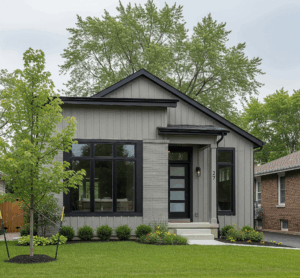Have you noticed that your home seems to feel drafty during the winter months and hotter than it should during the summer? Do you feel as though it is nearly impossible to cool and heat your home effectively? If so, the problem could be due to old windows. Such issues can be particularly common in older homes built during a time when energy was abundant and energy conservation was not as important as it is today.
Decades later, we now understand that reducing energy loss in your home is not only a great way to save money and make your home more comfortable year around but can also help the environment. While some methods for reducing the amount of energy loss in your home may require an initial investment, such as replacing your windows, such an investment will be worth it given the amount of money you will save on utility costs.
Replacing Outdated Windows with More Energy Efficient Replacement Windows
One of the most effective methods for reducing energy loss in your home is to replace old windows with more energy efficient windows. Poorly insulated windows can contribute up to 20 percent of your home’s energy loss. Replacing the windows in your home is an important, long-term investment, so it is vital that you choose the right window option for your home.
Today, you will find a variety of available options, which can make sorting through replacement options somewhat intimidating. When the time comes to replace the windows in your home, it is important to choose the most energy efficient windows your budget will allow. Double-glazed windows, featuring two panes of glass and a barrier of air between the panes can help your home to retain heated indoor air while preventing colder exterior air from entering your home.
Understanding Energy Ratings on Replacement Windows
Two of the most important factors to keep in mind when choosing replacement windows are the U-Factor and the Solar Heat Gain Coefficient (SHGC). Understanding these factors can help you to make a more informed decision when the time comes to compare energy efficient replacement windows for your home.
U-Factor refers to how well a window will prevent heat from escaping your home. This measure is rated from 0.09 to 1.20. The lower rating a window has, the better it will be at preventing heat from escaping your home.
SHGC refers to how well a window is able to block the sun’s heat from entering your home. This measure is rated from 0 to 1. The lower rating a window has on the SHGC scale, the better it will be at blocking solar heat from entering your home.
Keep in mind that prior to purchasing replacement windows for your home, it is important to check your local building code and permit requirements to determine whether there are any applicable energy requirements for residential windows. This will help to ensure you remain compliant with your local energy codes.








